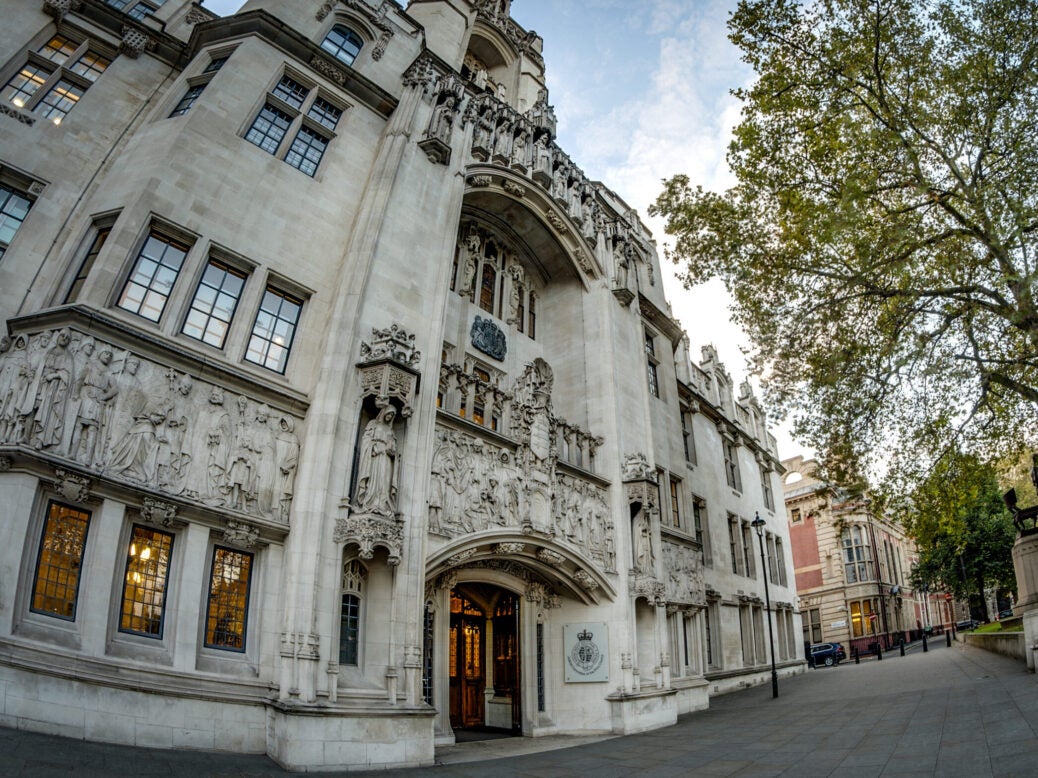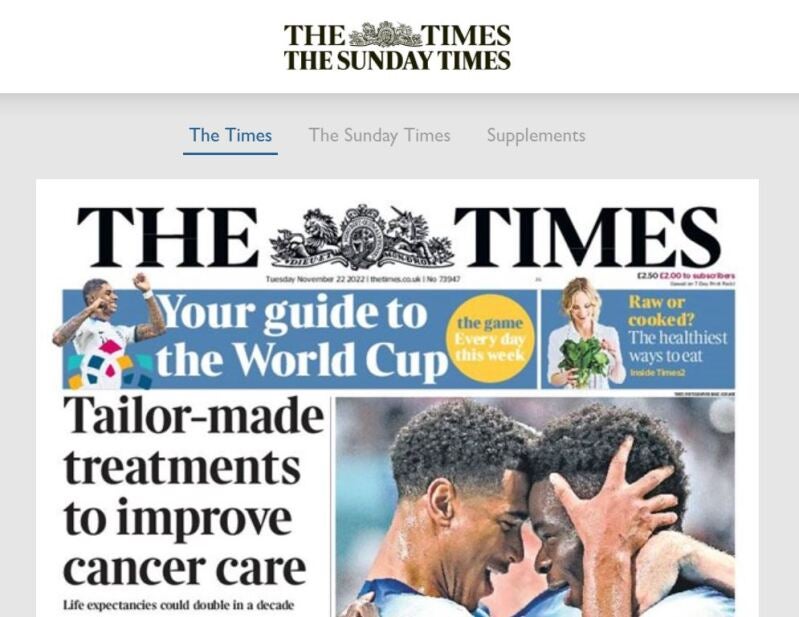
News UK‘s fight against HMRC over years of VAT paid on the digital editions of the Times, Sunday Times and Sun reached the Supreme Court on Tuesday.
The publisher believes that between September 2010 and December 2016 its e-newspaper editions should have been zero-rated in the same way as print newspapers because their services were “fundamentally the same”.
News publishers had to pay 20% VAT on digital editions of their products until May 2020, when legislation was fast-tracked to bring digital into line with print – meaning online subscriptions became zero-rated, as newspapers had been since VAT was first introduced with the Finance Act 1972.
News UK believes its digital editions should have been zero-rated for many years prior to 2020 and launched its case before it knew this change would be taking place.
It initially lost the case at the First-tier Tribunal in 2018, then won on appeal to the Upper Tribunal, then lost again after HMRC appealed to the Court of Appeal. The case has now gone all the way to the Supreme Court.
HMRC argued that “newspapers, journals and periodicals” as zero-rated by the VAT Act are “tangible” goods whereas digital products are not. But Jonathan Peacock KC, representing News UK in Tuesday’s hearing, told the Supreme Court that both were of the “same genus” regardless.
Peacock argued that the digital products serve the same “social policy purpose”, including the promotion of literacy, the dissemination of knowledge and democratic accountability, as the print newspapers.
He said: “We would say those purposes are just as much furthered by the digital edition of The Times as was print edition in the 1970s. In fact, arguably, it is more important today as our lives move more and more online.”
“What matters is the content… not the medium,” Peacock said. “We do not say that that alone is enough to get us home but it is a necessary element.”
He added: “The digital editions are fundamentally the same as the print edition and they further the same social policy goals. One is entitled to ask therefore what reason there is for a difference in tax treatment.”
He also questioned why digital subscribers “who perhaps don’t want to depend on print delivery” should have to pay more than those in print.
Peacock also argued that there was nothing in the relevant definition of “newspapers” that “read in the modern context… precludes digital”, adding there is “no inherent requirement in the term itself that one has to be able to use it as kindling or to wrap it in fish and chips”.
Peacock later pointed to the “always speaking” principle that means legislation is generally understood to cover new developments that Parliament could not have foreseen when the wording was originally written. The relevant legislation on VAT was first written in 1972, then updated in 1983 and 1994.
However Eleni Mitrophanous KC, representing HMRC, said the “always speaking” doctrine did not apply.
She argued that Parliament is often very specific about what it puts into the zero-rating policy and what it puts into the standard rate to raise revenue, and therefore assumptions and generalisations cannot be made. For example, she pointed to the difference between oranges and orange juice, or chocolate cake and chocolate biscuits.
She said it is “not clear” that Parliament would want electronically-supplied newspapers to be included, and that “medium matters” in its zero-rating decisions.
Pointing to Parliament’s decision to zero-rate maps but not electronically-supplied maps as an example, she added: “One can’t assume that it doesn’t discriminate on the basis of medium.”
She later added that “one simply can’t assume” Parliament would want to zero-rate digital news in the same way as printed news because when other things that do the same job came onto the market, such as books on CD-ROMs and USB sticks, Parliament similarly chose not to act.

Mitrophanous said: “There is nothing odd, illogical, irrational about Parliament, given its wish to raise taxation, saying we’ll zero-rate printed newspapers… but for anything else you can pay the VAT. Or perhaps its position is we’ll give you free access to printed books and newspapers and so on but we won’t give you that access when a device is needed.”
The hearing continues and a judgment will be handed down at a later date.
Press Gazette has calculated that if News UK wins the case, the UK news industry could be in for a windfall worth hundreds of millions of pounds.
Our research also showed that the UK news and magazine industry may have been made better off by £50m per year as a result of the zero-rating in 2020.
Email pged@pressgazette.co.uk to point out mistakes, provide story tips or send in a letter for publication on our "Letters Page" blog
